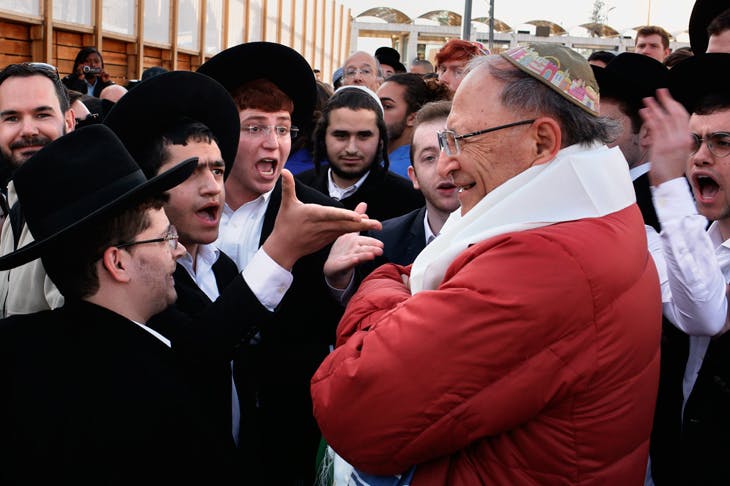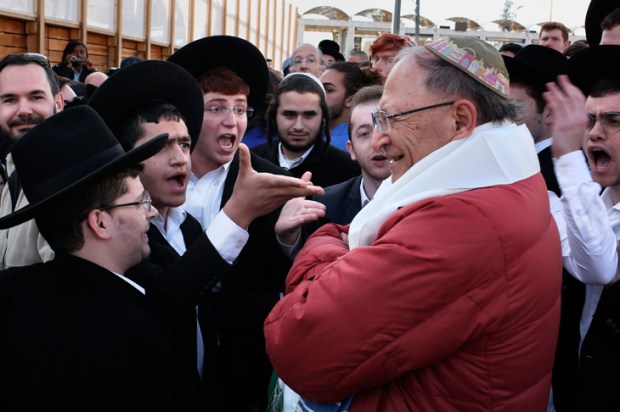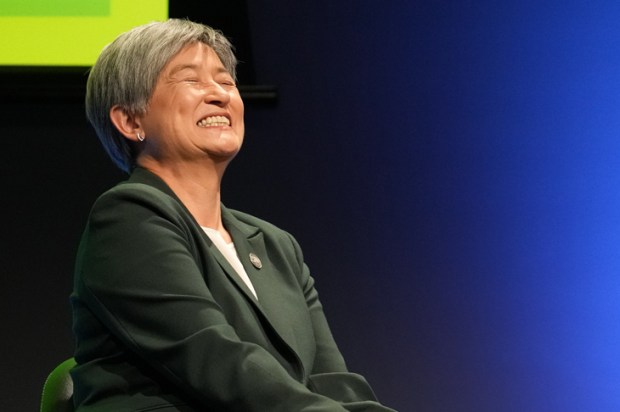As anyone who has closely followed the 18C debate knows, the major secular Jewish communal bodies, particularly the Executive Council of Australian Jewry (ECAJ) and the Australia-Israel Jewish Affairs Council (AIJAC) have lobbied vigorously for the retention of 18C & 18D essentially in their current form. They also claimed a consensus in the Jewish community. However, in doing so they have misrepresented Jewish values and interests, and misled the Parliamentary Inquiry.
It is blatantly untrue that there is a consensus of support for 18C within the Jewish community. Simply reading the various Jewish publications would demonstrate this is a hotly contested subject. Various submissions were made and supported by numerous members of the Jewish community who oppose 18C.
Prominent members of the Jewish community have published articles in support of free speech and the repeal of s.18C of the Racial Discrimination Act or amendment by deleting the criteria of ‘insult’ and ‘offend’. The Rabbinical Council of NSW has publicly made statements on 18C possibly inhibiting rabbis speaking out on moral issues if such speech may insult or offend someone. The Australian Jewish News reported this in April 2014 in an article titled ‘NSW Rabbis clash with leaders over 18C’. Leading Jewish barrister Geoffrey Bloch, in an article published in the online Jewish journal J-Wire, argues for repeal of 18C. He cites a prominent international Jewish expert, Prof. Michael Berenbaum who was involved in establishing the renowned Holocaust Museum in Washington DC. Even in the case of Holocaust deniers, he argues, it is far preferable that they not be silenced, but rather be discredited and have their anti-Semitism publicly exposed.
As recently as 1 December, 2016 owner and publisher of the Australian Jewish News, Robert Magid, wrote ‘When Jews act to restrict freedom of speech they undermine their argument against people like Jake Lynch and his cohort, who prevented supporters of Israel from presenting their point of view at Sydney University’. In other words, it is a dangerous two-edged sword. Magid has also published views in specific opposition to 18C in this magazine.
We see the principle of free speech is entrenched and practiced over many centuries in Jewish academic tradition. The Talmud is full of vigorous and volatile arguments. There are certainly examples which would be in breach of 18C; they would insult, offend and even potentially humiliate in some cases.
In the Book of Prophets (Melachim Alef [Kings 1], Ch 18). Elijah the Prophet, no less, deals with the false prophets of Ba’al by setting up a public competition which requires each side to call for a miraculous lighting of an altar. After the false prophets of Ba’al have failed in front of the assembled crowd, Elijah responds (paragraph 27):
At noontime, Elijah ridiculed them and he said, ‘Cry out in a loud voice, for he is a God! Perhaps he is conversing, or pursuing [enemies], or relieving himself; perhaps he is asleep and will awaken!’
Here is one of the greatest biblical prophets, Elijah, mocking Ba’al. Could Elijah have done so in Australia without being exposed to legal jeopardy? Would Gillian Triggs haul him before the Human Rights Commission? Such words expressed publicly, as they were, may well be classified as insulting, offensive or even humiliating under 18C. Whether Elijah could mount a successful defense under 18D and would have the time and considerable resources required to do so, we can only speculate.
It is argued by some Jewish secular bodies that 18C is needed to deal with anti-Semitism. There is not a single place on earth where this has actually worked. These laws have never solved the problem of anti-Semitism or reversed the trend of anti-Semitic incidents. We only need to look to Europe where there is now the most anti-Semitism since WWII. Many European countries have laws like 18C, some go further. The evidence is the reverse. The ECAJ, which monitors anti-Semitic incidents in Australia, reported an increase of approximately 10 per cent from 2015 to 2016 despite the presence of 18C. France in addition to 18C-type laws has had a law for over 20 years to address a specific form of anti-Semitism, namely Holocaust denial. However, there is now more Holocaust denial across France than when the law was introduced!
Further, 18C is very rarely used by the Jewish communal bodies which argue for retention – since 2010 there has been only one case litigated. 18C has never been used against anti-Semitic Islamic hate preachers. Both ECAJ and AIJAC were provided with the video of Hizb ut-Tahrir cleric Ismail al-Wahwah’s infamous racist and hateful tirade calling Jews ‘the most evil creature of Allah’ who have ‘corrupted the world’ and will ‘pay for blood with blood’. He called for the death of Jews, and declared ‘Who will set the world free from the Children of Israel so that the world will be able to say that it has rid itself of this hidden evil? This mission will be accomplished by none but you, O Muslims… The ember of jihad against the Jews will continue to burn.’ No 18C complaint was filed.
Critical Jewish ethics and values concern the protection of life and human dignity. An issue which has not received enough attention is that creating an environment in which free speech is perceived as inhibited can have disastrous and tragic unintended consequences.
The Rotherham Pakistani Muslim rape gangs in the UK operated for years, accumulating a staggering 1,400 victims. One of the reasons intervention was delayed is stated by Prof. Alexis Jay in her report commissioned by Rotherham Borough Council: ‘Staff described their nervousness about identifying the ethnic origins of perpetrators for fear of being thought as racist’. The San Bernadino terror attack which killed 14 people is another example. CBS and other media interviewed a neighbour of the jihadists who did not report suspicious activity ‘since he did not wish to racially profile those people’.
Of course, legislation like 18C does not directly prevent citizens from reporting suspicious activity to police. However, it does contribute to a general environment of inhibition of certain speech. What 18C does is to unreasonably constrain free speech in a manner inconsistent with Jewish theology, academic development and values. There is no evidence that 18C is an effective tool in changing a trend of anti-Semitism (there are much more effective tools) and such a law risks serious adverse consequences.
Got something to add? Join the discussion and comment below.
Get 10 issues for just $10
Subscribe to The Spectator Australia today for the next 10 magazine issues, plus full online access, for just $10.














Comments
Don't miss out
Join the conversation with other Spectator Australia readers. Subscribe to leave a comment.
SUBSCRIBEAlready a subscriber? Log in